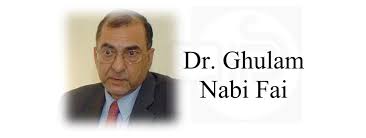Demolitions as extra-judicial punishment have left India in a perpetual state of violence
Aakar Patel
 The demolitions in Uttarakhand last week, after which five people were killed in violence, follows a pattern that we see in Bharatiya Janata Party-ruled states. The pattern is of course that the government goes after citizens, especially Muslims. The demolitions are carried out as a form of extra-judicial punishment by the municipal authorities and the police, whether after episodes of communal violence or protests against discrimination.
The demolitions in Uttarakhand last week, after which five people were killed in violence, follows a pattern that we see in Bharatiya Janata Party-ruled states. The pattern is of course that the government goes after citizens, especially Muslims. The demolitions are carried out as a form of extra-judicial punishment by the municipal authorities and the police, whether after episodes of communal violence or protests against discrimination.
The pattern has been documented in reports like “Routes of Wrath: Weaponising religious processions” by the Citizens and Lawyers Initiative. In his foreword, former Supreme Court Justice Rohinton F. Nariman says the report corroborates the findings (of decline in Indian democratic values), adding: “It finds that in nine states, during Ram Navami and Hanuman Jayanti celebrations in April 2022, there were widespread acts of hooliganism and violence.” After this, the JCBs came out.
A report by Amnesty International, of which I am India chair, has found similar patterns of people made homeless and deprived of livelihoods. These individuals were subjected to forced evictions, intimidation and unlawful force by the police and collective and arbitrary punishment, which undermined their rights to non-discrimination, adequate housing, and a fair trial. Muslim-concentrated localities were either chosen or Muslim-owned properties selectively targeted in diverse areas for demolitions.
Adjacent or nearby Hindu-owned properties that also allegedly encroached on public land, particularly in Gujarat and Madhya Pradesh, were left untouched. The Indian state’s rationalisation of carrying out arbitrary demolitions to remove illegal encroachment sits in contrast to the reality of the country where the implementation of building laws sees lack of enforcement, that has led to a lot of construction without requisite permissions. In 2017, a report by a panel formed by the Delhi high court to document “illegal constructions” in the capital region found “90 per cent (of buildings) carry one kind of violation of the building bylaws or another”.
The emblematic case here is that of Sainik Farms in Delhi, a tiny enclave that is totally illegal but hasn’t seen any JCBs come and demolish the bungalows of our wealthy. The headline of a May 2023 news item illustrates this perfectly: “Expedite call on Delhi’s Sainik Farms’ bid for regularisation: High Court”. Of course, the poor and especially Muslim poor are not given any such leeway. They’re subjected to forced eviction, which is the permanent or temporary removal of people against their will from the homes or land they occupy, without legal protections and other safeguards. Forced evictions are a violation of human rights, including but not limited to the right to adequate housing.
Under international human rights law, states must ensure that evictions only occur in exceptional circumstances, require full justification and the provision of adequate legal safeguards. None of that here in New India, of course.
In fact, India’s bulldozer demolitions are often instigated at the highest levels of government, with many state officials directly or indirectly calling for the use of bulldozers against Muslims. There is credible evidence to believe these demolitions are discriminatory and targeted as part of a hate campaign against Muslims in India. Rather than prevent discrimination towards Muslims, senior political leaders and officials have actively encouraged it.
During the April 2022 demolitions in Delhi, BJP spokesman G.V.L. Narasimha defined JCB as “Jihadi Control Board”, in a now-deleted tweet.
The discrimination shows elsewhere too. A year-and-a-half since the demolitions that Amnesty documented, despite the financial hardships created by the loss of their homes and businesses, victims continue to wait for justice with legal cases pending in courts. To date, the courts have failed to address punitive demolitions with the scale and urgency required by the prevailing situation, enabling the Indian authorities to continue tearing down people’s homes and businesses in other areas with widespread impunity.
This must be seen in conjunction with the creation of quasi-judicial tribunals in Uttar Pradesh and Madhya Pradesh which have provided prompt relief to Hindus who suffered losses due to the preceding violence while Muslim victims of the violence and following demolitions continue to struggle for justice.
The “Routes of Wrath” report concludes that while there have been earlier phases of communal violence in India, which entrenched cycles of violence, segregation and generated lasting barriers to socio-economic mobility for Indian Muslims in particular, they did not undermine State control over society or its authority over institutions in the manner that is being seen today.
Coordination between Hindutva outfits, and the police and district administration, means combining an extreme ideological entity with the civil service.
What can be observed is that the relationship between them has become institutionalised in many parts, sustaining a violently undemocratic model of governance that is anathema to the rule of law.
In a letter to the prime minister [Narendra Modi] in April 2022, more than 100 retired senior civil servants stated that the administration of law has become the means by which the minorities, particularly Muslims, can be kept in a state of perpetual fear. They said facilitation and support for communal frenzy was being provided at all levels of the administration — from local police and administrative officials to the highest political levels in state and Central governments. “While the actual commission of violence may be outsourced to fringe groups, there is little doubt as to how the ground for their operations is made fertile, how each of them follows a master script and shares a common ‘tool kit’ and how the propaganda machinery of a party as well as the State is made available to them to defend their actions”, the retired bureaucrats had written.
Finally, the Citizens and Lawyers Initiative report concludes: “The available evidence corroborates statements by civil society groups, lawyers, academics and activists, that India has now reached a stage of perpetual violence.”
Courtesy: The Wire








